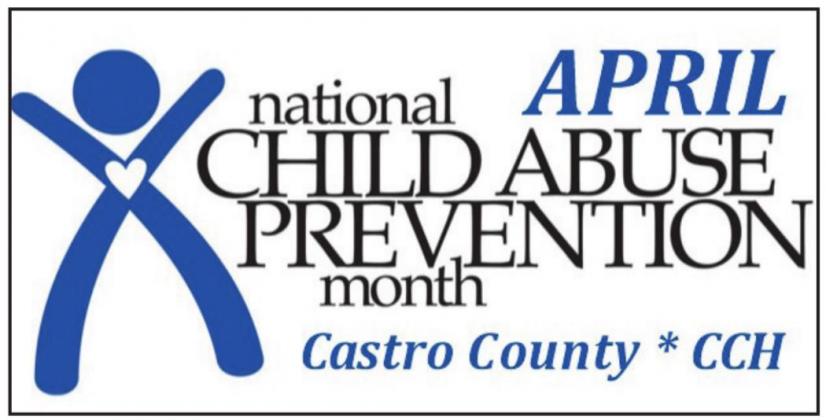Castro County is joining the nation in proclaiming April as Child Abuse Prevention and Awareness Month.
The Plains Memorial Hospital Trauma Program will be holding an event on the Castro County courthouse grounds at the gazebo on April 8 at 1:30 p.m.
According to Dana Cobb, RN and Chief Nursing Officer at Castro County Healthcare, CCH is sponsoring the event is to bring awareness to the public about child abuse, its prevalence, and resources. Information will be shared by area organizations, followed by a blue-ribbon tying ceremony.
“County members are encouraged to attend and will be offered ribbons to tie around the courthouse that represent victims of child abuse,” said Cobb.
Cobb noted that representatives from Great Plains CASA for Kids (Court Appointed Special Advocates for Children) Hereford office and The Bridge out of
Amarillo will be attending. According to the CDC on adverse childhood events, mentoring programs can help by:
-Change how people think about the causes of ACEs and who could help prevent them.
-Shift the focus from individual responsibility to community solutions.
-Reduce stigma around seeking help with parenting challenges or for substance misuse, depression, or suicidal thoughts.
-Promote safe, stable, nurturing relationships and environments where children live, learn, and play.
Research suggests that mentoring programs improve outcomes across behavioral, social, emotional and academic domains. Big Brothers, Big Sisters is the oldest and best-known example of a one-on-one mentoring program. Evaluations of the program show that mentored youth are less likely to skip classes, skip school, initiate drug, and alcohol use, or engage in physical fighting.
Other benefits include improvements in academic performance, parent-child and student-teacher relationships, and parental trust.
Opportunities to develop and practice leadership, decision-making, self-management, and social problem-solving skills are important components of after-school programs with documented benefits.
One example is the After School Matters program, which offers apprenticeship experiences in technology, science, communication, the arts, and sports to high school students. Rigorous evaluations of the program show many program benefits, including improved attitudes toward school, fewer course failures, and higher graduation rates. Youth in the program are also less likely to sell drugs or participate in gang activity.

